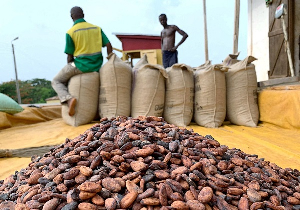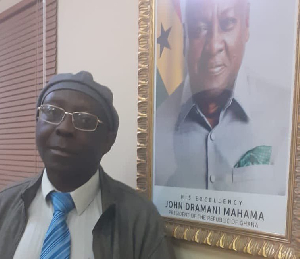Petroleum product dealers can take part of the blame for not allowing consumers to enjoy the full benefits when prices go down on the world market, but the real ‘killer’ for the consumer, critics say, are the countless taxes and levies government slaps on the products.
The African Centre for Energy Policy (ACEP) wonders, for example, what a TOR debt-recovery levy would still be doing on the fuel price build-up after so much money has been collected; or why the consumer should pay an exploration levy to the GNPC when the fuel used in Ghana is imported.
“We have been paying TOR Debt Recovery Levy of 8 pesewas per litre since 2003. When we did our analysis the last time the original debt was about GH¢1.5billion, but from 2003 till date we have paid over GH¢5.7billion. So even if you have a discount rate of 10 percent on it, we should have finished paying by now,” Executive Director of ACEP Mohammed Amin Adam said.
“Why do we continue to pay that debt when indeed TOR is even not functioning? Does that mean government is not using the money to pay the debt? If government was using that money to pay the debt we should have finished paying that money by now. This is why we are saying that the TOR Debt Recovery Levy is no longer justifiable,” he said.
Explaining the workings of the petroleum downstream sector to journalists lately, Senyo Hosi of the Bulk Oil Distribution Companies also said: “TOR is a limited liability company. Why should we really have a tax just for that?”
Another of the contentious levies -- the Exploration Levy -- was meant to support the GNPC; however, to silence critics who think the national oil company, as a commercial entity does not deserve the levy, government has diverted it to the Petroleum Commission.
Here again, Dr. Amin Adam said: “But the Petroleum Commission does not engage in exploration; it is a regulator. There is no justification why we continue to pay it”.
On the BOST margin, he said: “It is not necessary since BOST does not collect the money and use it to buy strategic reserves; they use it for infrastructure, storage facilities. Now, you and I know that BOST has been hiring its facilities to OMCs and BDCs at commercial rates, and the companies add that to their cost which is used to determine their margin or premium. So there is double-charging here”.
The taxes and levies charged on petroleum products include but are not limited to road fund, energy fund, cross-subsidy levy, BOST margin, Special Petroleum Tax, recovery margin, and the almighty excise duty.
When all the taxes charged on petroleum products are put together they come to about 20%.
Government’s practice in the immediate past, of slapping so many taxes on petroleum products and turning around to say it is subsidising the products, is seen as amounting to giving with one hand and taking away with the other.
“These taxes are not justifiable, and so when we are seeing prices coming down you may not see the effect. Government can intervene, not by forcing OMCs to charge certain prices but by reconsidering its own policies and decisions,” Dr. Amin Adam said.
Business News of Tuesday, 28 July 2015
Source: B&FT













